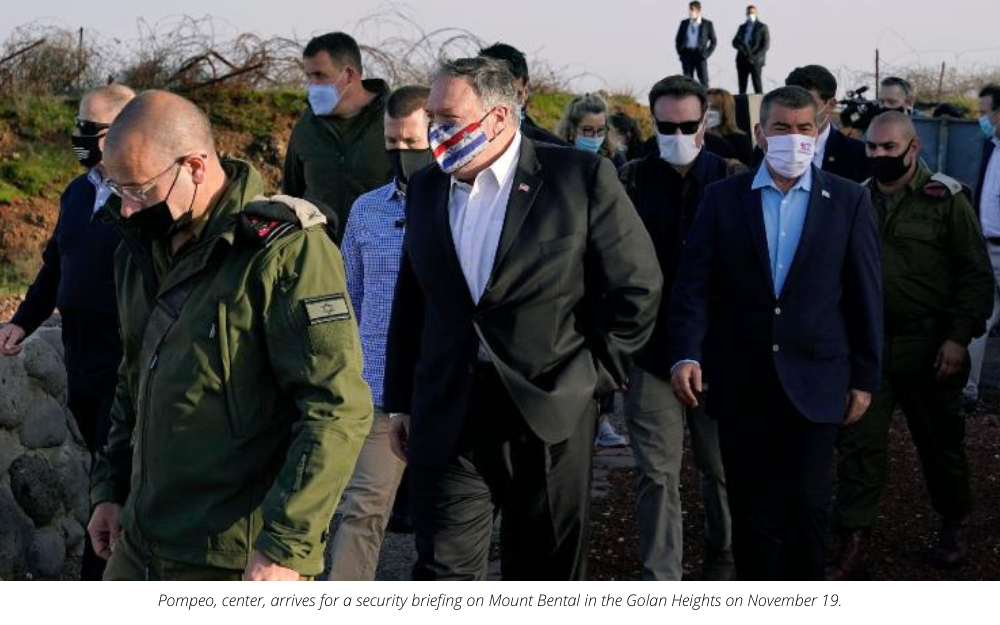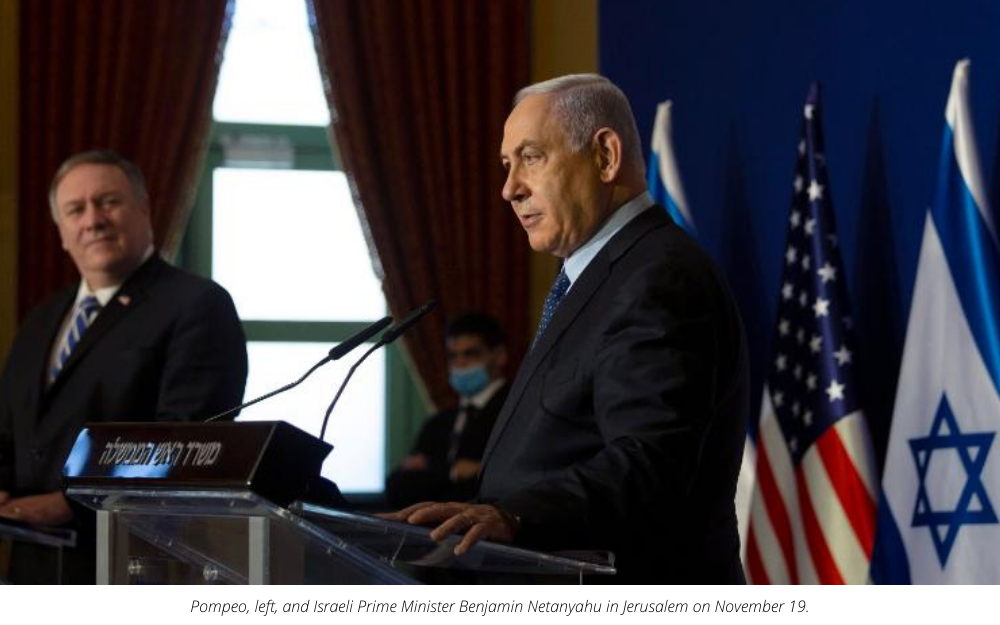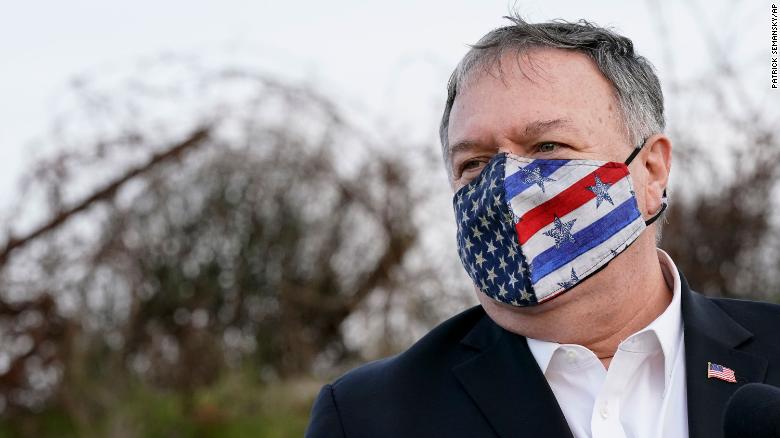After his visit to the Psagot winery, Pompeo upended decades of US foreign policy once again, announcing that products made in Israeli settlements could be labeled “Made in Israel,” instead of “Made in the West Bank.” The owners of the winery spearheaded this fight in Europe, suing the European Union in recent years for barring the winery from attaching a “Made in Israel” label to its products. Psagot lost the lawsuit, but with Pompeo’s announcement, they seem to have won the war with a champion in the Trump administration.
The guidelines Pompeo released stipulate that Israeli products made in Area C of the West Bank, where Israel has full security and civilian control, can be labeled “Made in Israel.” Area C constitutes some 60% of the West Bank, which the international community considers territory for a future Palestinian state. Pompeo’s guidelines even went far beyond the Trump administration’s plan for Middle East peace, which set aside most of Area C for the Palestinians, if and when their leadership decided to reengage with the White House.
Pompeo boasted on Twitter that the new guidelines “protect Israeli producers and put the United States, and the world, on track towards recognizing reality.”
But just like recognition of Israeli sovereignty in the Golan Heights, it is US foreign policy that stands alone, ignoring international consensus and often UN Security Council resolutions.
Palestinians have voiced their anger at Pompeo’s visit ahead of his arrival in the West Bank. A day earlier, Palestinian land owners protested near Psagot. Waving Palestinian flags, many held signs that read “Pompeo Go Home” and “Pompeo is a partner to war criminals.” Psagot was built on land confiscated from the nearby Palestinian village Al-Bireh, they argue.
Palestinian leaders slammed Pompeo’s decision to visit the settlements but were powerless to stop it. PLO Executive Committee member Hanan Ashrawi said on Twitter that Pompeo was “trespassing on Palestinian land stolen by Israel for its illegal settler-colonial enterprise. You’ve done a lot of damage already. Just go away!”
Before visiting Psagot, Pompeo stopped at Qasr el-Yahud, a biblical site considered the traditional location of the baptism of Jesus Christ. The site is a common destination for Christian pilgrims, who submerge themselves in the Jordan River. Qasr el-Yahud, which means Castle of the Jew in Arabic, is also the biblical site at which the Israelites crossed the Jordan River into the Holy Land.
















